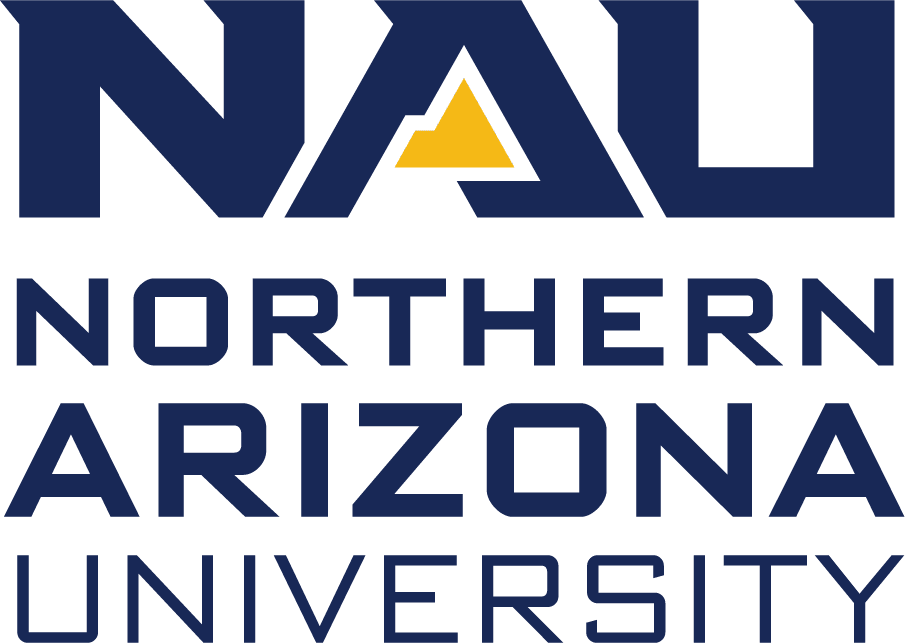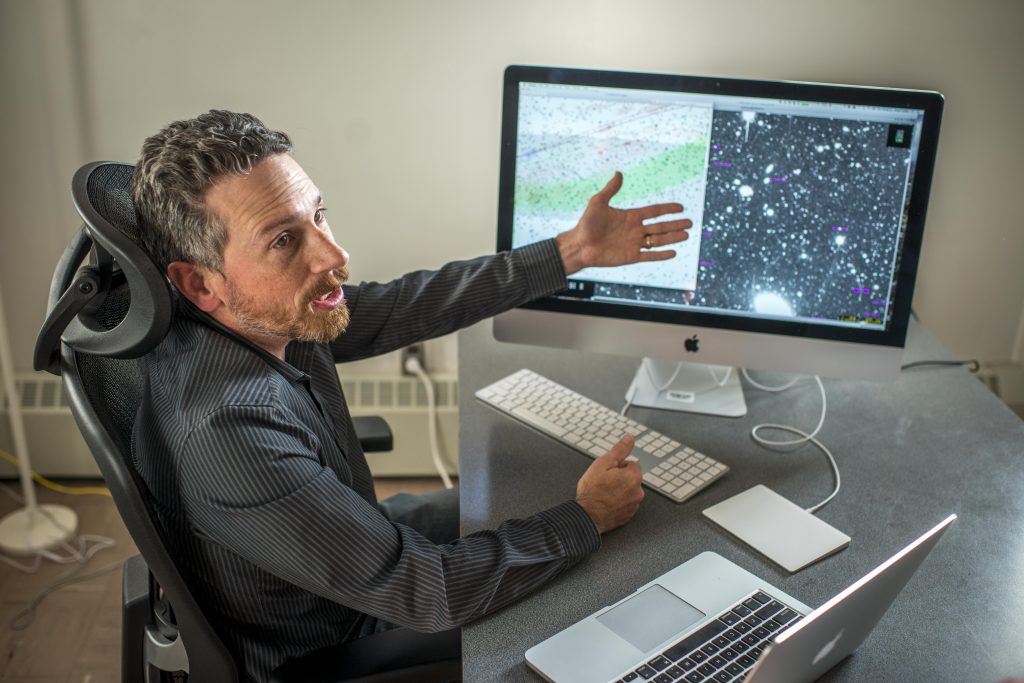Sept. 19, 2019
Chad Trujillo, assistant professor at Northern Arizona University, has been awarded the 2019 Paolo Farinella Prize by the Europlanet Society for his contributions in the field of planetary science concerning “The Trans-Neptunian Population.”
Along with collaborator Scott Sheppard from the Carnegie Institution for Science, Trujillo was honored at an award ceremony on Sept. 16 at the European Planetary Science Congress (EPSC) in Geneva, Switzerland. Shepard and Trujillo presented the Farinella Prize Lecture entitled “Completing the Inventory of the Solar System” as part of the award session.
The annual prize, established in 2010 to honor the memory of Italian scientist Paolo Farinella, recognizes an outstanding researcher not older than 47 years (Farinella’s age when he died) who has achieved important results in one of Farinella’s fields of work. Each year the prize focuses on a different research area. The prize is supported by the University of Pisa and by the Institute for Space Astrophysics and Planetology in Rome.
“This was definitely a surprise,” Trujillo said. “I had no idea that we might be nominated for the prize, let alone be selected. I know that our research is well-known, but there are so many excellent scientists studying the outer solar system that I was really astonished and humbled that the committee chose us to receive this prestigious award. And it is an honor to be sharing this award with Scott Sheppard of Carnegie, who has been instrumental to the success and longevity of our project.”
“Scott and I have been working for many years discovering the outermost objects in our solar system,” Trujillo said. “It’s been a pleasure to be part of many discoveries including many Trans-Neptunian Objects as well as Neptune Trojan asteroids and dwarf planets. More recently, we have been trying to find the outermost objects in the solar system. These extremely distant objects still orbit the Sun, but have an unusual orbital alignment that has been the basis for the hypothesis that there might be a very distant undiscovered giant planet in our solar system, which is an exciting prospect. When we began our work together, I don’t think most people, including myself, realized that there would be such a rich variety of very distant objects in the outer solar system.”
Trujillo and Sheppard are part of a team that has been searching for Planet X—believed to be on the edge of the solar system—since 2014. In 2018, they discovered Farout, an object at about 120 astronomical units (AU) from Earth—the farthest observed object in the solar system. The announcement attracted attention by national media outlets including CNN, NBC News, Space.com and Science. Since then, the team found FarFarOut, another major discovery even farther from the sun.

Kerry Bennett
Office of the Vice President for Research



